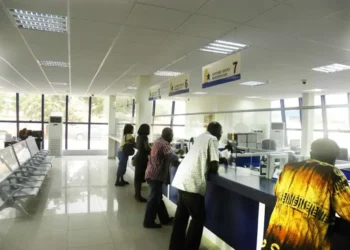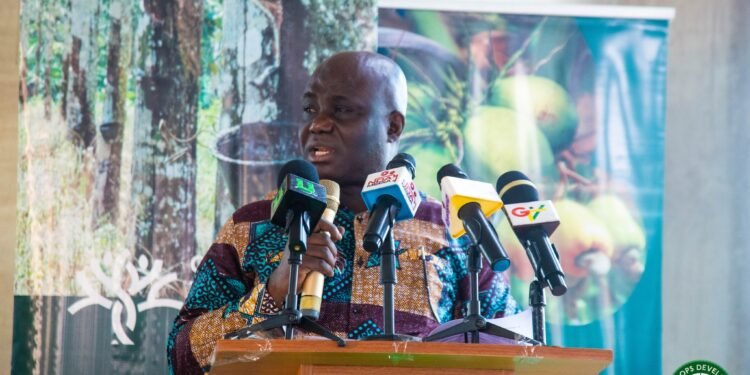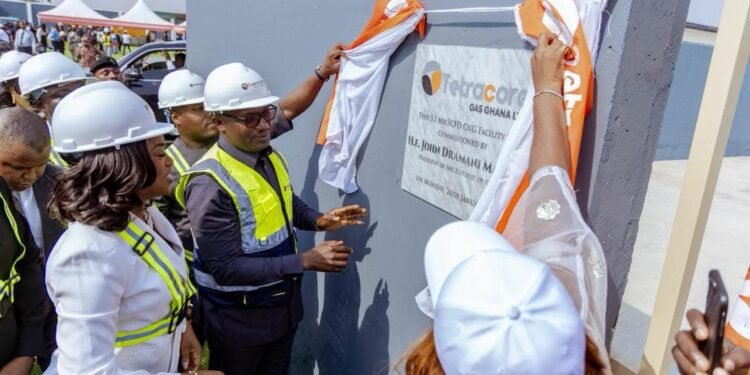The Finance Minister of the Republic of Ghana, Kenneth Ofori Atta in his presentation to Parliament on the 2024 Financial Year Budget on Wednesday, November 15 2023, announced a zero rate VAT on locally manufactured sanitary products.
He also announced the granting of import duty waivers for raw materials for the local manufacturing of sanitary products.
These tax waivers come against years of activism, advocacies and campaigns by Civil Society Groups, Non-Governmental Organizations, Student Unions, media practitioners, women-focused groups and other well-meaning Ghanaians.
For most of these groups, they expected that the Finance Minister would make a bold statement to remove the 15 tax component on sanitary products, however, the Finance Minister only announced a zero rate VAT on locally manufactured sanitary products as well as import duty waivers for raw materials for the local manufacture of sanitary products.
Reacting to the news, member of the Ghana Civil Society Platform on Sustainable Development Goal (SDG), Archibald Adams indicated that his group will not relent in its efforts to ensure that all taxes on sanitary pads are removed.
According to him, the current taxes on the product make it difficult for some ladies to afford it.
Meanwhile, the Head of Medical Devices, Food and Drugs Authority, Mr Rowland Sefakor revealed that only three local manufacturing companies located at the Tema Free Zone Enclave produced sanitary products in the country.
The question is, what is the capacity of these companies? How many pieces of sanitary products do they produce in a year? While data on the number of products these organizations produce in a year is hard to find, it is obvious they produce the least of the sanitary products in the Ghanaian market.
Thus, even though the Finance Minister’s tax waiver announcement is good for the local companies in the production of sanitary products, the bigger part of the tax problem on sanitary products remains a ‘cross’ for women and young girls to continue to live with.
It is important to note that in Ghana sanitary pad is considered a luxury product by the Ghana Revenue Authority’s guidelines and therefore subjected to a 20% import tax and a 15% VAT rate.
The other taxes on sanitary products in the country include 0.5% ECOWAS levy, 15% Network charges VAT, 2.5% Import NHIL, 1%IRS tax deposit, 0.75%EXIM levy, 2.5% Network GETFund, 0.4% Processing fee, 2.5% Network NHIL, 2% Special Import Levy, 2.5%GETFund levy, 1%Inspection fee, and 1% Covid-19 health recovery levy as well as 0.2% African Union import levy.
It is as a result of these taxes that sanitary products are too expensive, especially for the most vulnerable and marginalized women and young girls in the country.
A study by the United Nations International Children’s Emergency Fund (UNICEF) revealed that nearly 95% of young girls in rural areas mostly miss school because they’re too poor to afford to buy pads during menstruation.
Again, according to the United Nations Educational, Scientific and Cultural Organization (UNESCO), many poor girls lose 39 learning days in school each year due to the lack of access to sanitary pads during menstruation.
Sanitary Products; A Plush Many Women And Young Girls Cannot Afford
In some instances, some women and young girls are compelled by economic hardships to use clothes and in most pathetic situations sand or ash during menstruation.
For these women and many young girls, it’s cheaper to use such options as it is reusable even though it makes them vulnerable and susceptible to infections like urinary tract infections.
Moreover, there have also been reports of a significant number of women and young girls resorting to the use of baby diapers in place of sanitary pads owing to the high prices of the latter. Thus, for most vulnerable women and poor young girls, the coming of new moons is ‘traumatizing’ as they reflect on continuous increases in the prices of sanitary pads.
Think about the state of young girls in the rural villages of the country, or many young girls staying with their relatives because they do not have parents, and the street hawker girl who earns about GHS 20 daily selling water or meat pie buying 3 packs of sanitary pads at today’s exorbitant price of GHS20 during 4-7 days of menstruation.
The ramifications effects are that most vulnerable young girls have become victims of early and unwanted pregnancies and their culprits mostly deny the pregnancy because these young girls are unable to afford sanitary products every month thereby becoming prey to men who promised them to take care of such responsibilities.
It’s however doleful that for most women especially poor women and young girls, the use of sanitary products is a plush they cannot afford.
Therefore, the government through the Ghana Revenue Authority must take urgent steps to declassify sanitary products as luxury products to avoid the 20% import tax and 15% VAT rate, at least for the meantime.
Again, the campaign and advocacies to scrap taxes on sanitary products should not be limited to only a few Civil Society Groups or Non-Governmental Organizations and women focused-groups, all well-meaning Ghanaians must fight for the removal of taxes on sanitary products especially for children of school-going age to protect especially vulnerable young girls against this gender inequality and artificial injustice to their nature.
READ ALSO: 2024 Budget; Government To Implement Measures To Ensure Efficiency In Public Spending























